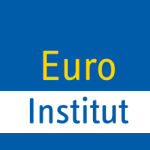Online: Zoom platform
The seminar analyses the dialectical role of the border in Central Europe, oscillating between closure and openness, between a place of ideological confrontation during the Cold War, a place of reunification of the European continent after the fall of the Berlin Wall in 1989, and a tool for securing the external borders of the EU after the migratory crisis of 2015. The example of the Banat border region is used to illustrate the different functions of the Romanian-Hungarian border as a place of exchange and as a place of conflict (minority problems, separation during the Cold War, closure after the migration crisis, etc.).
Short overview:
This event allowed for a crossed perspective between Romanian and Hungarian researchers and actors of CB relations. The first topic concerned multicultural cooperation, including cases of external citizenship as a double-edged sword, and multilingual education as a response to national minorities. On the subject of cooperation beyond the Schengen border, the speakers balanced the material and symbolic opportunity for Romania if its candidacy was accepted, and the question of the control of illegal cross-border flows that would still arise. The third panel portrayed the border control system during the communist period as an example of communist surveillance mania. The fourth duo presented some issues regarding ethnic groups at the border, with stereotypes on the one hand, and on the other hand the adaptability and negotiation capacity of borderland people, which is a resource that is not yet fully tapped. The last group looked back at the many changes that the Romanian-Hungarian border has undergone in the last 100 years, from a hard, closed and exclusive border to a soft and open one. Nevertheless, institutionalized cross-border cooperation still needs to develop its strategic and functional aspects, and to strengthen mutual trust. To this end, it needs further assistance and a supportive attitude from the EU and national authorities.
Organisers: Paula Muresan & Nicolae Paun, Babeș-Bolayi University (Cluj); Melinda Benczi, Guyla Okskay, CESCI (Budapest
Contact: Paula Muresan paula.muresan@ubbcluj.ro
Communiqué de presse de l’événement : ICI



